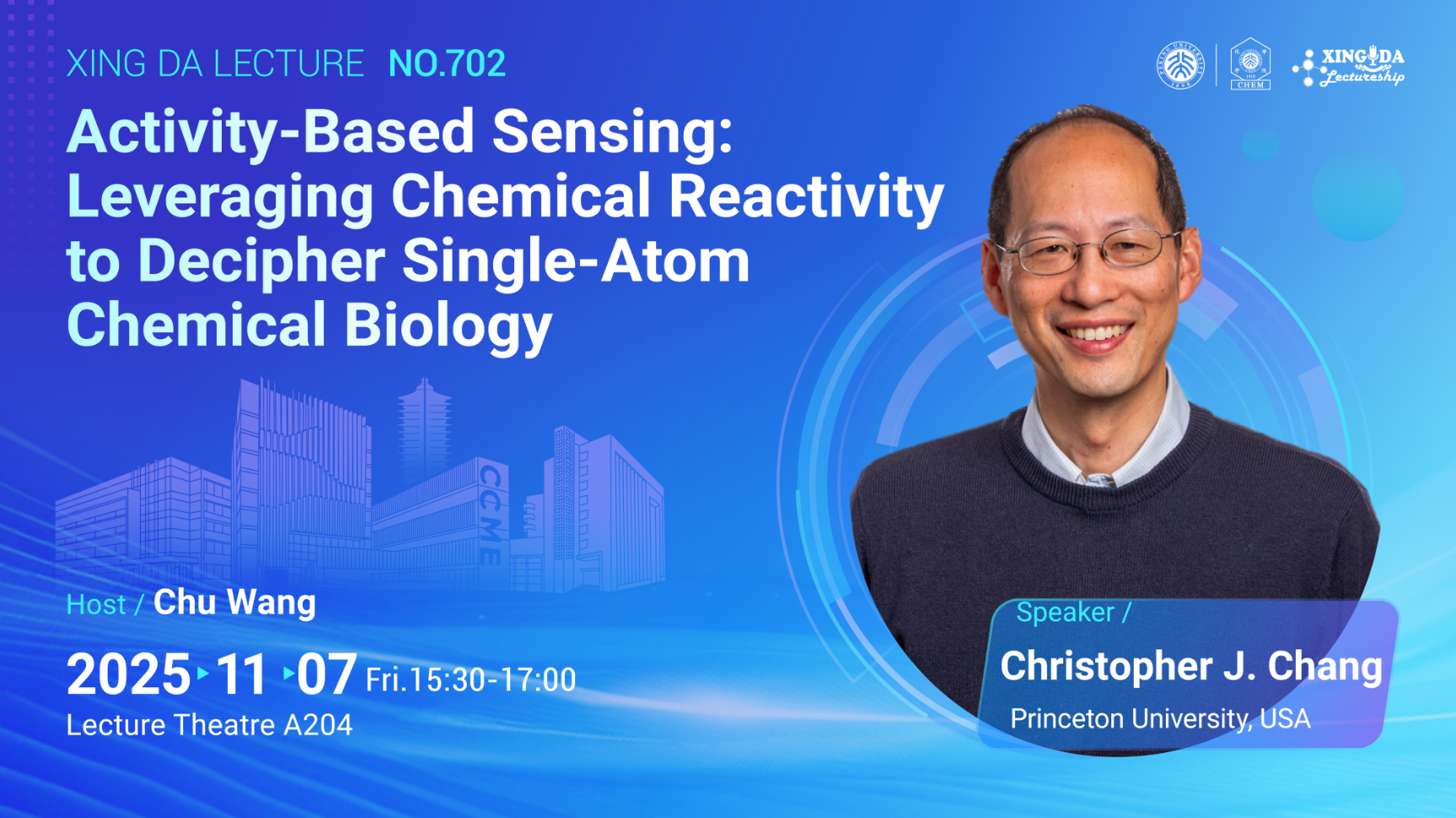
Abstract
Traditional strategies for developing selective sensors rely on molecular recognition and static lock-and-key binding to achieve high specificity. We have pioneered an alternative design approach, termed activity-based sensing, in which we exploit inherent differences in chemical reactivity as a foundation for distinguishing between chemical analytes that are similar in shape and size within complex biological systems. This presentation will focus on activity-based sensing approaches to visualize dynamic fluxes of metal ions, reactive oxygen species, and reactive carbon species and their signal/stress contributions to living systems, along with activity-based proteomics probes to identify their biological targets. As representative examples of new biological lessons learned from these chemical probes, we are advancing a new paradigm of single-atom chemical biology, where metal nutrients like copper and iron can serve as dynamic signals to regulate protein function by metalloallostery, or reversible addition or removal of single oxygen or carbon atoms on the proteome that can identify next-generation precision diagnostics and medicines that target redox disease vulnerabilities in cancer and neurodegeneration.
Biography
Christopher J. Chang 教授现任美国普林斯顿大学(Princeton University)化学系 Edward and Virginia Taylor 生物有机化学讲席教授。他于 1997 年在加州理工学院(Caltech)获得学士与硕士学位,2002 年在麻省理工学院(MIT)获得博士学位,师从 Daniel G. Nocera 教授,随后在麻省理工学院与 Stephen Lippard 教授从事博士后研究。在加入普林斯顿之前,Chang 教授在加州大学伯克利分校(UC Berkeley)任教二十年,曾任化学系1942级讲席教授,并在分子与细胞生物学系及 Helen Wills 神经科学研究所兼任职务。他的研究横跨无机化学、有机化学与化学生物学,核心目标是理解金属元素及氧化还原活性分子在生命体系中的化学与生物学功能。Chris Chang 教授提出了Activity-Based Sensing (ABS)的概念,发展出一系列可用于活体成像的荧光探针,用于检测过渡金属离子及小分子信号物,广泛应用于神经退行性疾病、肿瘤代谢及氧化应激研究。他曾荣获 2024 年美国化学会 Alfred Bader 生物有机与生物无机化学奖、2021 年古根海姆学者奖、2020 年洪堡奖及 2019 年 Sackler 化学奖等多项国际荣誉。他目前担任ACS Accounts of Chemical Research 主编。